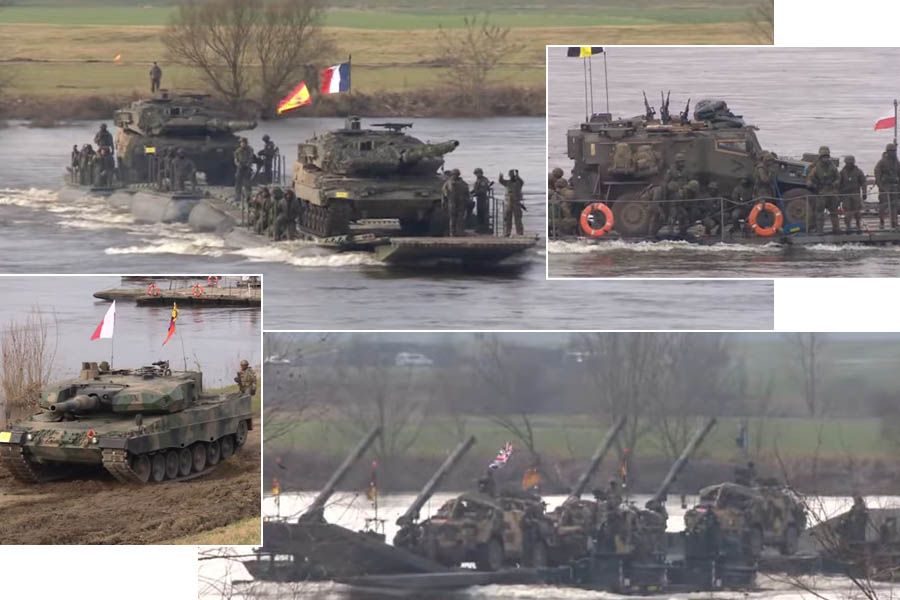
NATO troops are currently participating in a significant military exercise in Poland, marking the alliance's largest display of military might since the Cold War. Meanwhile, the European Union (EU) is set to unveil a multi-billion dollar plan aimed at bolstering Europe's defense capabilities in anticipation of potential conflict.
As NATO flexes its muscles on its eastern flank, troops from various member states, including France, Germany, Turkey, and the UK, are conducting maneuvers, including crossing the Vistula River in Poland. While the enemy in these exercises may be imaginary, NATO's concerns about potential threats are very real.
The ongoing conflict in Ukraine, following Russia's invasion, has sparked fears of further aggression from Moscow. NATO leaders have warned that Russia could potentially target one of its member states within the next five to ten years. The alliance is keenly aware of the need to fortify its defenses and prepare for any eventuality.
However, recent remarks by former US President Donald Trump, casting doubt on America's commitment to NATO, have sent shockwaves across Europe. Since the end of the Cold War, many European countries have significantly reduced their defense spending, relying heavily on the US for military support.
Despite the show of force demonstrated in the current military exercises, Europe remains ill-prepared to defend itself without American assistance. The continent faces challenges in producing an adequate supply of weapons and ammunition, with countries like Germany and France struggling to meet their defense needs.
The EU's upcoming defense plan aims to address these deficiencies by modernizing and strengthening Europe's defense industry. However, military leaders warn that it will take time for Europe to achieve true military independence. The transition to self-sufficiency in defense production is projected to take at least a decade.
Moreover, there is a broader challenge of convincing European citizens, many of whom have not experienced war firsthand for generations, of the importance of investing in defense. As Europe confronts evolving security threats, there is a growing recognition of the need to prioritize military preparedness and not take peace for granted.
In summary, while NATO and the EU are taking steps to enhance Europe's defense capabilities, the road to true military independence is fraught with challenges. As geopolitical tensions continue to rise, the need for a strong and unified European defense is more pressing than ever.
Message To The Readers:
NATO Military Exercise in Poland: NATO troops engage in a significant military exercise in Poland, showcasing the alliance's largest display of military strength since the Cold War era.
EU Defense Plan: The European Union is set to unveil a multi-billion dollar plan aimed at enhancing Europe's defense capabilities, reflecting growing concerns about potential security threats.
Concerns Over Russian Aggression: Amidst ongoing conflict in Ukraine, NATO leaders warn of the possibility of Russia targeting one of its member states within the next five to ten years, heightening security concerns across the alliance.
Dependency on US Support: Despite efforts to bolster defense capabilities, many European countries, including Germany and France, remain reliant on US military support, highlighting the need for greater self-sufficiency in defense production and preparedness.
Thank you for reading: globalpostheadline.com | If you want to advertise your Company, Events, Movies, Products, Hotels, Travel Packages Let us know